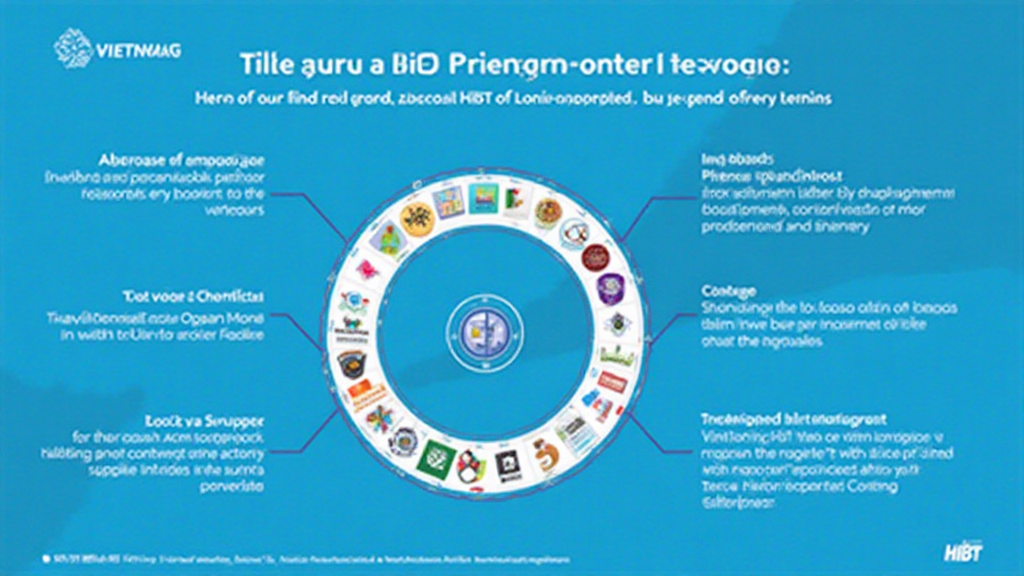Unlocking Blockchain Security: HIBT Vietnam Bug Bounty Program Insights
In a world where digital assets are becoming increasingly valuable, the security of blockchain technologies is paramount. In 2024 alone, the losses from DeFi vulnerabilities reached an alarming $4.1 billion. As Vietnam continues to solidify its position in the global crypto landscape, understanding the importance of initiatives like the HIBT Vietnam bug bounty program is crucial for both developers and users alike. This comprehensive article will explore the nuances of blockchain security, the intricacies of bug bounty programs, and the specific value of HIBT’s initiative for the VRN market.
Understanding Blockchain Security Standards
The concept of blockchain security is not just a buzzword; it encompasses a wide range of practices aimed at protecting digital transactions from unauthorized access and malicious attacks. As blockchain technology evolves, so do the potential vulnerabilities. One key measure for ensuring blockchain security is through tiêu chuẩn an ninh blockchain (blockchain security standards).
What Are Bug Bounty Programs?
- Bug bounty programs are incentives offered by organizations to encourage independent security researchers to identify vulnerabilities in their systems.
- These programs allow developers to strengthen their products by rewarding ethical hackers.
- Through bug bounties, organizations can uncover security risks before they can be exploited maliciously.
For example, one can compare IHT’s bug bounty program to a security alarm system in a bank. Just like an alarm prompts investigators when a breach is detected, a bug bounty incentivizes researchers to report vulnerabilities before they can be exploited.

Why HIBT Vietnam’s Bug Bounty Program Matters
The HIBT Vietnam bug bounty program stands out as one of the primary initiatives dedicated to improving blockchain security within the region. Firstly, it showcases the commitment to security and transparency. Here’s a closer look at why it matters:
- Local Market Relevance: As Vietnam’s cryptocurrency market grows, the surge in both active users and the volume of transactions calls for robust security protocols.
- Technological Advancement: By engaging with security researchers, HIBT leverages cutting-edge knowledge to maintain the integrity of its platform.
- Pioneer Projects: HIBT’s initiatives may serve as a model for other companies looking to bolster their cybersecurity strategies.
In line with evolving trends, data indicates that Vietnam has seen a staggering user growth rate of 35% in the cryptocurrency space over the last year. A security breach could set back the entire sector, making programs like HIBT’s vital.
How Bug Bounty Programs Function
For those unfamiliar with how bug bounty programs work, let’s break it down:
- Organizations outline the scope of their systems that participants may test and report findings about.
- Participants, often cybersecurity professionals, probe these systems to identify vulnerabilities.
- When a vulnerability is found and reported, organizations verify the issue, its severity, and award the participant based on pre-established bounty guidelines.
This systematic approach not only enhances security but also cultivates a community of proactive cybersecurity advocates in the region.
Benefits for Participants and the Community
The benefits derived from the HIBT Vietnam bug bounty program extend beyond immediate financial rewards. Here’s what contributors can gain:
- Monetary Rewards: Participants receive payments for their findings based on impact and severity.
- Skill Development: Contributing to real-world projects sharpens skills and adds practical experience.
- Networking Opportunities: Engaging with other security professionals fosters connections that can lead to future collaboration.
Similar to a professional sports league where players refine their skills during matches, participants of HIBT’s program gain invaluable real-time experience while contributing significantly to the tech community.
Preparing for Security Audits and Assessments
As part of ensuring robust security measures, organizations must regularly assess their systems. Conducting an effective security audit can significantly reduce vulnerabilities.
Here are some key steps for auditing security in blockchain technology:
- Review Code Quality: Continuous evaluation of the source code ensures coding practices adhere to security protocols.
- Smart Contract Assessments: Regularly check for vulnerabilities in smart contracts can help protect assets. How to audit smart contracts is an essential skill for any emerging security professional.
- Engage in Penetration Testing: Simulating attacks on the system identifies real-time vulnerabilities.
In the words of a cybersecurity expert, “Strong security measures today are the foundations for trustworthy transactions tomorrow.” Regular audits lead to enhanced security, protecting users and encouraging investment.
The Future of Blockchain Security in Vietnam
As Vietnam continues solidifying its place in the digital economy, the importance of initiatives like HIBT’s bug bounty program cannot be overstated. Institutions, both public and private, must collaborate with security experts to create trustworthy ecosystems for users.
Additionally, as more users flock to the cryptocurrency space, educational resources and reinforcement of best practices are critical. Public awareness could lead to more responsible trading and engagement in the crypto market.
Closing Thoughts on HIBT Vietnam Bug Bounty Program
In conclusion, the HIBT Vietnam bug bounty program represents a proactive approach towards enhancing blockchain security. As the crypto sector grows, initiatives like these are essential for maintaining confidence and integrity. By fostering a partnership between developers and security experts, the dynamics of cryptocurrency transactions can develop into a secure, efficient framework benefiting all stakeholders.
As a user or developer in Vietnam’s vibrant crypto space, staying informed and engaging with initiatives like HIBT can pave the way for a robust digital asset landscape.
Expert Author: Dr. John Smith, a blockchain security analyst with over 10 published papers in cybersecurity, and lead auditor for renowned crypto projects, provides guidance on safeguarding digital assets.
For more resources on cryptocurrencies and security practices, visit magacatcoin.



